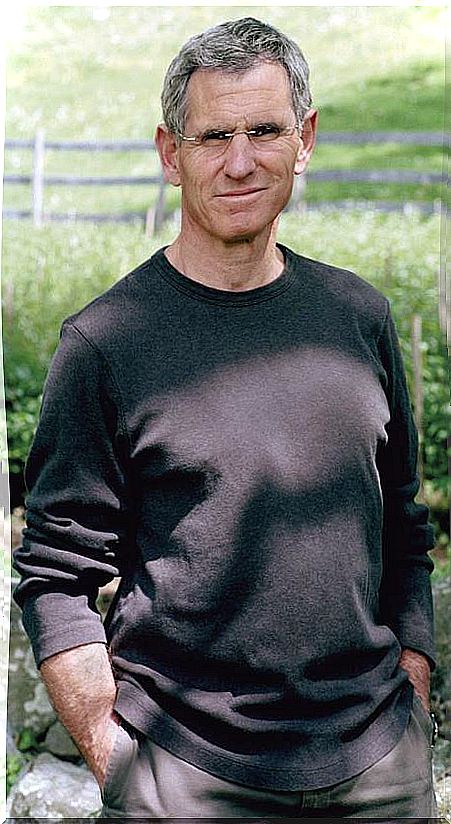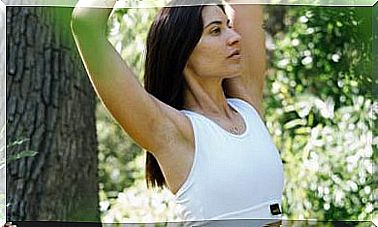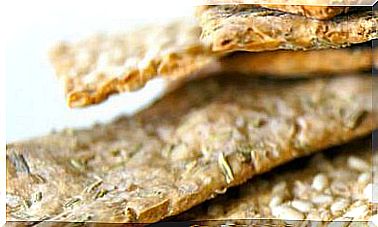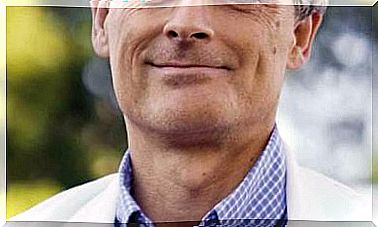“Meditating Is A Way Of Loving”
We spoke with Dr. Jon Kabat-Zinn, a great popularizer of mindfulness and a pioneer in investigating its effects on stress, anxiety and other health disorders.

Jon Kabat-Zinn is one of the scientists who has contributed the most to research and publicize the effects of meditation on stress reduction and health. Thanks in part to his work, terms like mindfulness or ” mindfulness ,” a form of meditation that is applied to everyday life, are becoming more and more familiar in the West. He is the author, among other books, of Living fully crises (Ed. Kairós), Mindfulness in everyday life (Ed. Paidós) and The practice of mindfulness (Ed. Kairós), which he wrote “to inspire people who love each other enough to want to meditate. “
Dr. Kabat-Zinn, PhD in molecular biology from the Massachusetts Institute of Technology (MIT), is best known for creating a program to reduce stress based on mindfulness meditation: the famous eight-week program known as Mindfulness- Based Stress Reduction (MBSR) or Mindfulness Based Stress Reduction Program (REBAP).
A life dedicated to investigating mindfulness
In the late 1970s, he founded the Stress Reduction Clinic, which years later became what is now the Center for Mindfulness in Medicine, Health Care, and Society. This clinic, associated with the Massachusetts School of Medicine, was a pioneer in bringing meditation to hospitals to improve the evolution and quality of life of patients by applying the MBSR program. For years, this program has served as a model for various meditation programs implemented in medical centers around the world.
Fundamental is his research work, which he has developed mainly in fields such as the influence of the mind in healing processes, the clinical application of meditation or the effects of mindfulness on the brain, the immune system and emotional health.
In addition to hospitals, Dr. Kabat-Zinn has conducted meditation programs in prisons and in companies with a demanding work environment. Today there are mindfulness instructors all over the world and different versions of the program tailored to different needs and goals.
In this extensive interview we talk with him about his personal experience with meditation, his research work and his vision of mindfulness or mindfulness meditation as a tool to lead a more conscious and serene life.
Meditation: an oxygen balloon for everyday life
– How did you become interested in meditation?
– My mother was a painter and my father, an eminent scientist, an immunologist. I grew up in a family in which there were two different forms of knowledge: that of science and that of art. From a young age I was interested in how these two currents could be combined or even integrated.
Then, at age 22, while studying molecular biology at university, I came into contact with Zen meditation. I realized that Buddhist meditative practices opened a path that encompassed both scientific and art knowledge, as well as probably others.
It was something that I had been looking for intuitively since I was very young, perhaps since I was 4 or 5 years old. And when I found him, I began to practice meditation regularly, with different teachers, and I went deeper and deeper. Meditation became a unifying force in my life.
– What do you remember of your first steps in meditation?
– The important thing was to take some time a day to “not do”, to simply “be”. People often misunderstand what it means to meditate. It is believed that it is doing something concrete to get to a special state. But it’s really about stopping doing, getting out of the daily routine and hustle and bustle to spend some time staying with your conscience awake.
“People often misunderstand what it means to meditate. It is believed to be doing something concrete to get to a special state.”
From very early on I discovered that for me it was the best way to start the day. That fed me. It was like an oxygen balloon that went straight to my heart. And then all the rest of the day I was doing much better. It happened to me like orchestras: before playing a piece they have to spend a good time tuning the instruments. Meditation tunes us before we go out into the world so that we can play the melody.
– Do you meditate every day?
Yes, between half an hour and an hour. Or more, if we include the time I practice yoga, which for me is another way of meditating. Sometimes different doors can be used to enter the same room. Now, although formal meditation in the morning is very important, there is another way to do it that is even more so.
It is about bringing meditation into everyday life or, in other words, allowing life itself to become a meditative practice, because true meditation depends more on how life is lived than on whether it is practiced by setting aside time each morning . Meditating thus becomes being more present in everything that happens throughout the day, avoiding judging and reacting impulsively.
“Authentic meditation depends more on how life is lived than on whether it is practiced by setting aside time each morning.”
–You have dedicated yourself to teaching a meditation called mindfulness or mindfulness. Is mindfulness meditation another name for Buddhist or yoga meditation?
“In a way, yes.” Mindfulness is the nucleus or point of union of the different meditative practices. There are many currents and philosophies based on meditation, as well as many techniques to practice it, but they all have in common that mindfulness, which I understand in a broad sense as pure awareness. All traditions have alluded to it, but Buddhist meditative practices have defined it most precisely. Hence, mindfulness has been considered the axis of Buddhist meditation.
But I like to define mindfulness in practical terms as the awareness that is awakened by paying attention to the present moment intentionally and without judgment. And I like to add: “as if your life depended on it.” Because in many ways, both literally and metaphorically, life can depend on the quality of that care and openness of heart.
A way of being and a way of suffering less
– Why is it so important to pay attention without judging?
–Practicing mindfulness does not prevent us from judging: we constantly judge and we will continue to do so. But it helps to become aware of how much we do it and to what extent we can come to believe our own judgments. If you stop and observe the mind you realize how many ideas and opinions it holds about almost anything.
Many of our value judgments are made automatically, without thinking about it, and these judgments are followed by an emotional reaction that will be positive or negative depending on whether we liked what we are judging or not.
“If you stop and observe the mind you realize how many ideas and opinions it holds about almost anything.”
Mindfulness helps you see things more as they are and not as much as we think they are or how we would like or fear them to be. This is very liberating and reduces suffering, because much of our suffering comes from not getting things the way we want or from getting things that we think we don’t want. We are constantly fighting life, yearning to be happy by hoping that the universe will give us what we want. But the universe does not take us so much into account …
– He maintains that meditation is not a technique but a way of being. What do you mean?
–There are thousands of meditative techniques but the techniques are there to be worked on and developed by using something. They can be helpful at some level but at times they can be a hindrance. Instead, meditating is not about doing but about being more present, being less critical and less emotionally reactive, more capable of discerning …
Ultimately, it is about being more compassionate, with oneself and with others, and also, why not say it, wiser, since you no longer live trapped by the appearance of things and you gain understanding about what is happening. happening. So when you act, you act from the being, and that is a very different doing from the unconscious doing.
– What things should we pay that attention to?
– The important thing is not what you pay attention to but how you pay it. Nor is it a matter of paying more attention but of paying a special kind of attention, less attached and less limited by the image that one has of oneself and of what surrounds them. In any case, in practice it is logical to ask what can be paid attention to. It can be the breath, the sensations that that breath causes in the different parts of the body, what is felt on the skin, the sensations that a yoga posture causes …
“The important thing is not what you pay attention to but how you pay attention.”
But I insist: it is an attention that is focused on the moment, a lucid and equanimous presence of mind. Because in that mental presence our essence resides. The problem is that we are often so busy thinking and doing that we forget.
– Meditation teaches not to identify with what you feel or think. If we are not what we think or what we feel, what are we?
– That is the fundamental question of any deep meditative practice: Who am I? or What am I? When we are asked that question on a daily basis, we usually answer what we are called, what do we do, where were we born … But who are we beyond all those attributes?
Mindfulness meditation constantly asks the question but does not provide any of those answers. Because the answer is not in words but in silence. It allows you to realize that if you are not who you think you are, you may be consciousness itself. Or put another way: you are the one who is awake; not the one who feels or thinks, but the one who is present, the one who asks the question. And consciousness, that mental presence, is more powerful than thoughts and feelings, because it allows to shed light on them, understand them and even change them.
The benefits of mindfulness for health
–What effects does mindfulness have on health?
–In just over thirty years, more than 20,000 clinical patients have passed through the Stress Reduction Clinic to complete the MBSR (Mindfulness-Based Stress Reduction or “stress reduction with mindfulness”) program. Patients with very diverse health problems, the vast majority of which obtained very good results.
Meditation has been shown to reduce anxiety and depression, regulate blood pressure, improve psoriasis, and modify the activity of brain structures such as the hippocampus and amygdala, which are involved in emotions, attention, and memory. In cases of chronic or very serious diseases, the medical problem may persist but the person feels better: they learn to live with the disease and to regulate the pain. In addition, it has been proven that it does not take a long time to practice for these structural and functional changes to occur in the brain and in the body.
“In serious diseases, mindfulness learns to live with the disease and regulate pain”
–How does meditation help to cope with pain?
– Most of the time when we feel pain what we want is to run away from it, turn our backs on it, and resort to drugs or even surgery. But drugs are not always able to reduce pain and sometimes surgery is not feasible. Rarely do we try to make friends with that pain, understand it and accept it. However, when someone begins to bring awareness to the sensations of the body, to the thoughts that they have about that pain and the emotions that it provokes, it usually happens that their suffering is reduced. The sensations may not go away, but you suffer less.
What happens is that we usually confuse the sensation of pain with what we think about pain and the emotional reactions we have to that pain, be it frustration, disappointment, even fear … And meditating allows us to become aware of it and see that there are other ways of relating to pain. In fact, a study found that paying attention to bodily sensations in a certain way, especially uncomfortable sensations such as pain, modifies the brain’s interpretation of them over time. Hence, meditation is a very powerful tool for people with painful chronic diseases that medicine cannot alleviate.
– How does the way of coping with the disease change?
–We put the accent on the aspects of the health of the person that are doing well and we leave what does not work in the hands of the doctors. When someone goes to a hospital they are concerned about what is going wrong and it is natural that this is the case, but we try to make them notice what is going well, what is not a problem. In breathing, for example. The simple fact that you are breathing is already a good thing. Or in the body. Or in the ability to pay attention and awaken consciousness. And what we do is train that awareness in the body itself.
– How far does the healing power of the mind go? Can you determine the evolution of a disease?
– No one yet knows the answer to that question, although more and more is known. At the Stress Reduction Clinic we carried out a very large study with patients suffering from psoriasis and receiving phototherapy treatment. They had to go naked in UV booths two or three times a week for several months, which was generally quite stressful for them. P
Now psoriasis has no cure, although it improves with sunlight and ultraviolet light and is known to be closely related to emotional stresses.A randomized clinical study showed that in people who practiced mindfulness during sessions of phototherapy psoriasis symptoms improved up to four times faster than in people who only received ultraviolet light and did not meditate.
Somehow the mind influences the cells and the genes that control cell proliferation. This suggests that if the mind is aligned with the body, it favors healing.
How to practice mindfulness
–To practice mindfulness meditation, is it necessary to set aside time a day or is it enough to try to pay more attention to day-to-day routines?
–The answer depends on what the objective is. For people who suffer from chronic illness or pain or who live with a lot of stress, it is probably best to join a stress reduction program based on mindfulness, if they have one available. You can also follow the program by reading my books or listening to meditation CDs. In any case, it is important that you set aside time a day to practice. For the rest of the people, this practice is also important, but the essential thing is to apply it to all aspects of the day to day.
Of course, without some formal meditation practice it is more difficult to know how to do it.
– What skills does it require to practice mindfulness?
– You have to have the will to take care of yourself and also a certain confidence in yourself, to know that, no matter how difficult the circumstances you are experiencing, in each of us there are more things that go well than things that go wrong. Sometimes if the person is very depressed they do not have enough confidence to get started.
If you open yourself to the possibility that you have the resources to learn, grow, heal, and perhaps transform your life, you may consider meditating. You can trust that with a little effort and discipline you will be able to turn practice into a habit and enjoy that beauty of being alive, about which many poets have also spoken so beautifully in Spanish, such as Antonio Machado, Pablo Neruda or Juan Ramón Jiménez. . Meditating is a way of loving. What is needed is to remember that we are fundamentally well.
“No matter how difficult the circumstances we are experiencing, in each one of us there are more things that go well than things that go wrong.”
– Is it necessary to be guided to start practicing mindfulness?
-I recommend it. You can start by following the instructions in a book, group or recording to find out what to do. Otherwise it is easy to get lost in your own thoughts. And meditating has nothing to do with thinking, but it requires some discipline and structure.
– Could you give an example of how it applies to day to day?
–You can become aware of when you wake up in the morning before jumping out of bed. You lie down for a while and try to feel how the body leans on the bed and how the breath moves in and out moving through the body. From time to time you remind yourself that you are awake and that a new day has been given to you, and then you look back at the body and its sensations. It is, therefore, about taking a few minutes to be in contact with the body, with the breath, with the conscience …
Then you can take that attitude to the bathroom. In the shower, instead of losing yourself in thoughts that make you be anywhere but in the shower, you can watch how the water falls on the skin. And so with other facets of everyday life: while cooking, dressing, cleaning, brushing your teeth … You don’t need to spend extra time on it: it’s just about paying attention to what you already do. every day.
– Does that imply not wanting to do several things at the same time?
Yes, being multitasking is not very compatible with mindfulness! In fact, multiple studies have found that multitasking puts great strain on the brain and greatly affects performance. Doing things one by one and making an effort to do them well by being present at all times, not only mentally but also from the body, is a great step if you want to live a meaningful life. Of course, the world is moving in the opposite direction. Doing several things at the same time is the order of the day and that is why there is also so much stress.
“Multitasking puts great strain on the brain and has a huge impact on performance.”
The negative effects of stress
-Describe the lack of attention as an evil of our times. Why do you think it is so common?
– I think it is due in large part to technology and the digital revolution. Through email, mobile, internet … we are always connected with others, we can attend to work matters and we find entertainment to distract ourselves. Each time we find it more difficult to be well alone, simply feeling at ease, if we cannot communicate.
It is the first time in history that the human being is so far removed from what we could call the “analog world”, of which nature is a part. Human beings are also analog, not digital. In fact, to feel better we seek contact with nature: we go to the analog world, fleeing from the digital world. The sea, the wind in the trees, the clouds … they remind us of the stillness of the analog world and provide us with moments that we have engraved in our DNA.
–When you are stressed, time seems to get out of hand. Is that perception related to the difficulty of being present?
–If you are focused on the present you have more time, because throughout the day you enjoy an infinite number of moments. But if you live constantly distracted, doing several things at the same time and overcoming the moments waiting for better moments to come, you are lost: those better moments never come, because the only thing you live is the now, the present moment. The world is changing at an unprecedented rate and there will be no turning back. It is important that we relearn to stay in touch with silence and stillness by being present. Otherwise, it is very easy to spend the day “doing” instead of “being”.
– How does this way of living affect emotional health?
–Stress affects above all the relationship with oneself and with others. As for the relationship with oneself, many people totally lose the connection with their body: they reject it and dream of being able to have a younger, slimmer, more beautiful body … That rejection covers a lot of unhappiness. It is important to become aware of the body and let it be as it is without always wanting to change it or lose weight. We must value the opportunity to be alive that the body gives us!
On the other hand, stress disconnects us from our own thoughts, feelings and emotions, and this disconnection affects the relationships we maintain with others, especially with the people we love the most, who notice that one is not present and suffer thus. Stress keeps us from being ourselves. It soures the character and isolates.
– So does meditation help us to be happier?
–In a study we carried out in collaboration with the neuroscientist Richard Davidson we investigated the effects that reducing stress with meditation has on happiness levels. We look at the changes that meditation causes in the brain regions that process negative emotions in stressful situations. We saw that if you meditate, the brain reacts to these situations differently and instead of activating the right side of the prefrontal cortex more, the left side is activated more, which is related to greater emotional balance and intelligence.
“Meditation activates the left side of the prefrontal cortex more, which is related to greater emotional balance and intelligence.”
In previous studies it had been observed that Buddhist monks had this increased activity on the left side of the frontal region of the cerebral cortex. Our study suggested that a few weeks of meditation are enough to begin to cause brain changes in the line of those observed in Buddhist monks with more than 20 years of meditative practice. This is essential, because it places us before a medicine that does not separate the body from the mind.
– Is your method comparable to psychotherapy or does it follow different paths?
– I do not like to compare mindfulness with psychotherapy even though it is very therapeutic. I understand it more as a way of training and self-learning. That said, mindfulness has had a great impact on some psychotherapeutic currents.
There is, for example, a new therapy for depression called Mindfulness-based Cognitive Therapy that teaches people to observe their thoughts. Mindfulness-based therapy has also been developed to prevent relapses into alcoholism. Other psychotherapies contain some elements of mindfulness, such as Dialectical Behavioral Therapy, which is used in the treatment of borderline personality disorder, or Acceptance and Commitment therapy.
–How does mindfulness make us freer?
–When you can see how easily you get attached to things –be it an idea, a person, an emotion, a relationship …–, you have the possibility to choose not to become attached to or identify with them. That choice sets you free in the face of those things, while attachment makes you its slave. This does not mean that you are suddenly going to become some kind of saint, but that you can see moment by moment how easy it is to put on automatic pilot, act without consideration, fall into anger or frustration … so in each of those moments you can choose to bring awareness to that impulse.
And it is in consciousness where true freedom is found. You don’t have to do anything or go anywhere, just remember that you can choose to be open instead of closed, to be awake instead of distracted, to be nice instead of putting yourself ahead of others … Those little gestures they transform people.
It takes some discipline and time to change the habits of the mind, but I have seen many times people who in a few weeks feel that they have begun to regain control of their life.
Learn Pilates online
If you want to learn how to do Pilates at home and experience its physical and mental benefits from day one, don’t miss the Pilates at home course that Adriana Sintes offers exclusively for the Cuerpomente School, our online platform to lead a healthier life. You can follow this first free initiation class that is part of the course, with the basic Pilates postures and how to do them step by step.
If you are interested in meditation …
Escuela Cuerpomente offers you a 100% online meditation course to transform your brain and your life in just 8 weeks. Now you can practice mindfulness from home with guaranteed results.









